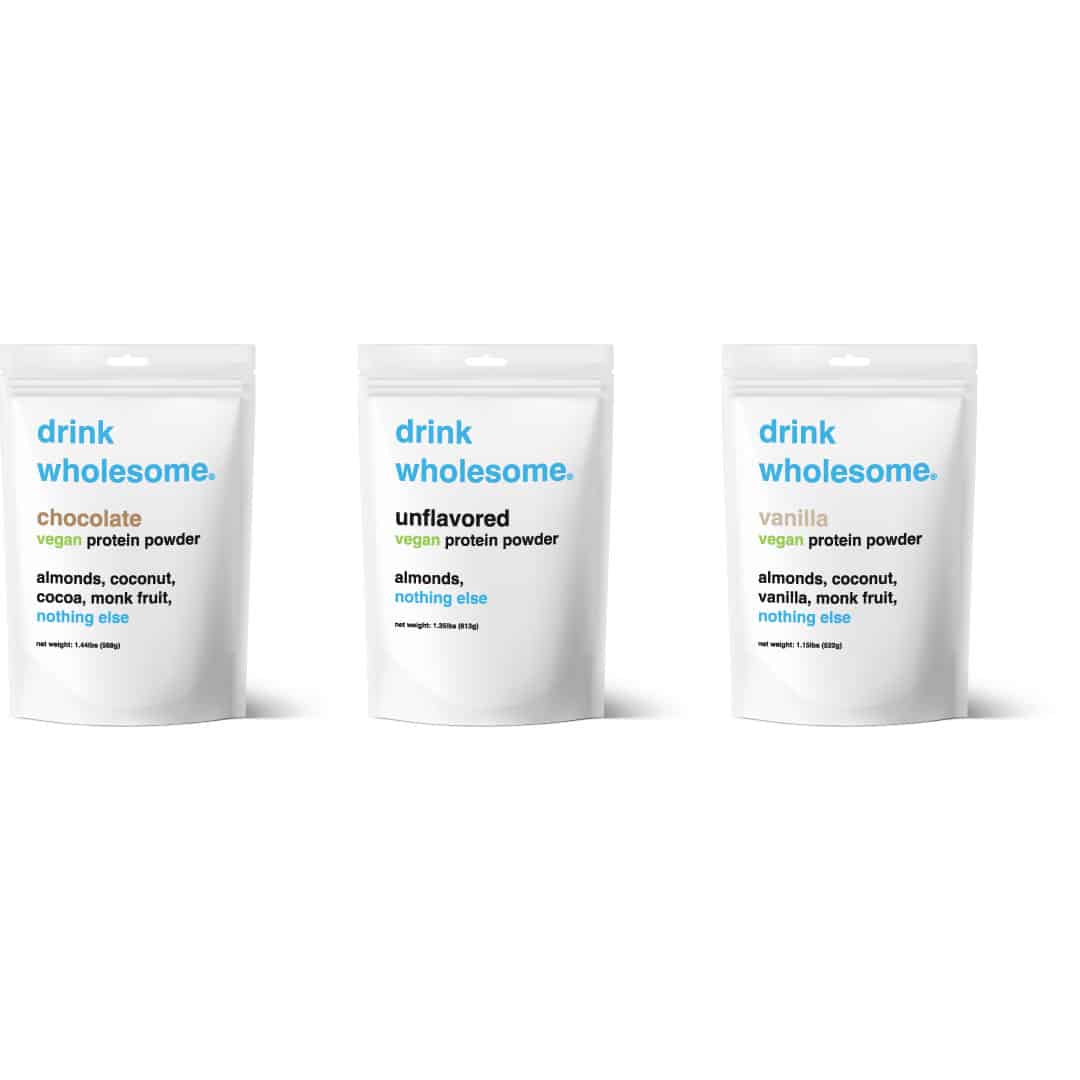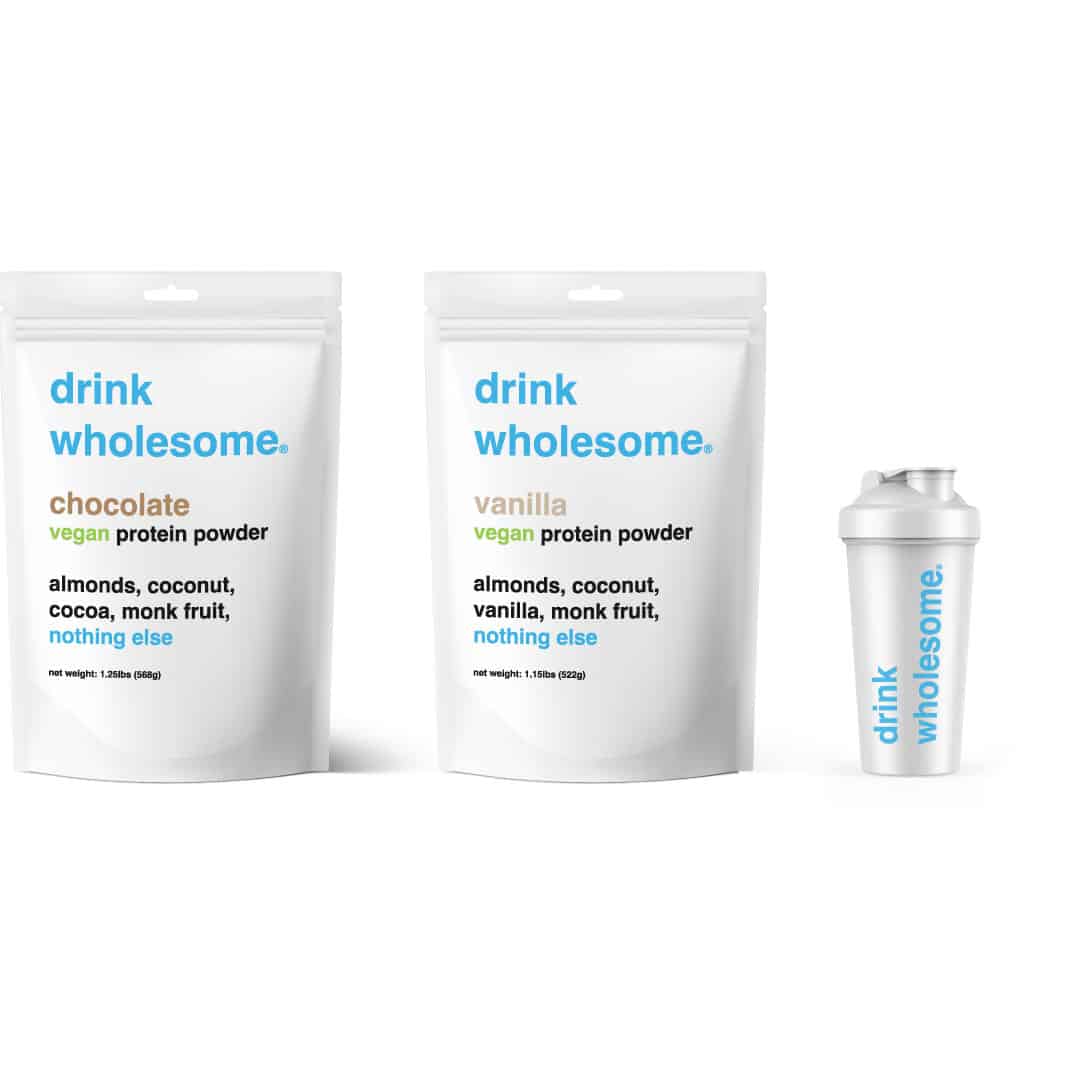Protein Powders
Protein Powders
What are almond protein powders?
Almond protein powders are sources of dietary protein in powder form that can be used to supplement your diet. Our almond protein powders are made from whole almonds.
Almond vs egg white vs collagen protein?
You may have noticed we offer three types of protein powder: collagen protein powder, egg white protein powder, and vegan almond protein powder. The reason we offer these three types is to accommodate the needs and preferences of as many customers as possible. Some people have nut allergies or sensitivities, for example, and are unable to use our almond protein powders.
As long as you are eating a balanced diet, any of these protein powders can help you achieve your wellness goals. Just pick the one that best suits your personal needs and/or preferences.
Are almond protein powders easy to digest?
Our customers have experienced fewer digestive issues with our almond protein powders than with any other type of plant-based protein supplement. This is probably because other plant-based protein supplements are made with protein concentrates and/or isolates, which have been stripped of everything but the protein, including the enzymes, fiber, and other natural digestive aids that help you break them down.
Almonds are also prebiotic, meaning they improve the composition of your gut microbiome, and increase butyrate – a type of beneficial short-chain fatty acid – in the colon. The fiber content of almonds promotes healthy and regular bowel movements too.
Are almond protein powders good for you?
Adding almond powders to your diet is a great way to boost your protein intake. Unlike most animal proteins, almonds are not a complete protein, meaning they do not contain all the amino acids the body needs, but cannot produce on its own. This could be considered a drawback, but only for someone who does not eat a balanced diet. If you are getting your protein from a variety of sources, it does matter if they are complete proteins or not. A balanced diet will give you all of the amino acids you need to achieve your wellness goals.
Almond protein powders have the added benefit of containing lots of vitamins and minerals, healthy fats, and fiber. Research shows that regularly eating this nutrient-rich source of protein can improve body composition and metabolic health outcomes.
Do your almond protein powders taste good?
Almond protein powders are easily the best tasting vegan protein powders. Unlike other types of vegan protein powder, they are not chalky or gritty, making them a great addition to smoothies and other recipes. Our almond protein powders are particularly good for increasing the protein content of baked goods. Order samples to see for yourself.
Which of your almond protein powders is best for me?
The vegan almond protein powder that is best for you will depend on your dietary restrictions (if any) and preferences. Learn more:
Vegan chocolate almond protein powder – Our chocolate almond protein powder is flavored with real cocoa and sweetened with monk fruit. Note that cocoa can trigger heartburn for some people. If you have GERD or acid reflux, we highly recommend ordering samples.
Vegan unflavored almond protein powder – Our vegan unflavored almond protein is made with one ingredient: almonds. Unlike our other almond protein powders, it is not meant to be mixed with just milk or water. Instead, it is best added to smoothies, oatmeal, and other recipes.
Vegan vanilla almond protein powder – Our vegan vanilla almond protein powder is flavored with real vanilla beans and sweetened with monk fruit. If you have a sensitive stomach and need a convenient way to boost your protein intake, this is the best place to start.
How do I use your almond protein powders?
Our almond protein powders can be mixed with 1-2 cups of cold milk, a milk alternative, or water to make a protein shake. They can also be added to smoothies, oatmeal, and other recipes for an easy protein boost. Check out our almond protein powder recipes for more ideas. Note that if you do choose to make a protein shake, and do not have a blender, use a shaker bottle. Unlike other companies, we do not use food additives to help our almond protein powders dissolve.
When should I use your almond protein powders?
The best time to use almond protein powders is in the morning. Eating lots of protein at breakfast will keep you full until lunch, discouraging snacking and overeating later in the day. Another good time to use almond protein powders is after a workout. Adding protein to your diet at this time can speed up the recovery process.
Are your almond protein powders safe for people with gut issues?
Our almond protein powders can help pregnant and breastfeeding mothers safely meet their protein needs. Unlike other companies, we do not use harmful food additives. Learn more about how to use almond protein powders to support pregnancy and breastfeeding.
Are your almond protein powders safe for pregnancy and breastfeeding?
Our almond protein powders can help pregnant and breastfeeding mothers safely meet their protein needs. Unlike other companies, we do not use harmful food additives. Learn more about how to use almond protein powders to support pregnancy and breastfeeding.
Can your almond protein powders help with weight management?
Almond protein powders can help you achieve and maintain a healthy weight. Whether you are looking to gain or lose weight, almond protein powders can help. Learn more about how to use almond protein powders for weight management.
Where can I buy your almond protein powders?
You can buy our almond protein powders here on our website. All orders come with free US shipping, and you can save 15% by subscribing. Subscribers can modify or cancel their subscription at any time.



